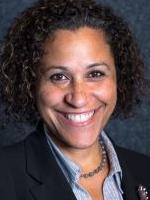

Project-Based Learning as a Vehicle for Equity (Intermediate) |
Explore and create : Creation lab
Heather Lechner Peter Schoen
Let's create equitable and inclusive experiences for students! In this intermediate session, we will explore the five pillars of PBL in depth, how technology can elevate exhibitions of learning and the importance of giving feedback to students in project cycles.
| Audience: | Coaches, Teachers |
| Skill level: | Intermediate |
| Attendee devices: | Devices useful |
| Attendee device specification: | Smartphone: Android, iOS, Windows Laptop: Chromebook, Mac, PC Tablet: Android, iOS, Windows |
| Topic: | Project-, problem- & challenge-based learning |
| Grade level: | PK-12 |
| Subject area: | STEM/STEAM |
| ISTE Standards: | For Educators: Collaborator
|
The purpose of this session is to demonstrate how project-based learning can be used as a vehicle for equity in the classroom, how educational technology can elevate project-based learning cycles, and how educator ISTE standards can enhance the project-based learning model.
Technology intervention used in this session will be devices (laptop, phone, tablet) for both the students and the teachers in the classroom, Microsoft Forms/Google Forms (online form websites, used for ease of grading, data tracking, and creating engaging questions), Microsoft Teams/Google Classroom/Class Websites (all hubs for posting, sharing, and creating information to share to students), Pear Deck (a digital presentation and engagement tool, used for presenting information and engaging students in analytical thinking), and Microsoft OneNote (a note-taking app, used for organization of documents, lists, and notes), Google Slides/Microsoft PowerPoint (for multimedia presentation), and WeVideo (a video presentation tool).
The primary model employed in this session will be an inquiry learning model, which models a project-based learning cycle. Attendees will learn about how to use technology to foster project-based learning in classrooms through the experience of modifying existing driving questions and project-based learning cycles that they have worked with before, listening to lesson suggestions, solving open-ended problems in those lesson suggestions, and arriving at solutions in many different ways.
Evidence of success will be measured both during and after the session. The metrics during the session are the teacher’s ability to create intellectually ambitious tasks with equity and educational technology in mind, and use technology to create effective scaffolds and support for learners. When the 2021-2022 school year begins, a survey will be sent out where each educator will reflect on their future ability to engage students in active learning with technology based off of the session.
First, welcome and introductions will occur. This will be in a peer-to-peer interaction format, where the audience will think-pair-share about themselves and then share with the group. Afterwards, the presenter will introduce herself. Then, the following five minutes will be reserved for information on why this topic is important and also the data that supports this. This will be a device based activity, as teachers will log into their devices and participate in this portion using Pear Deck (a platform like PowerPoint where slides are displayed on individual screens). After that, the presenter will share strategies working within the five major elements of the project-based learning cycle (driving question, entry event, project process, presentation, and cycles of feedback) and how educational technology and the ISTE educator standards can be utilized to enhance project cycles. This is more lecture based, but will have opportunities for peer interaction regarding lesson application and strategy suggestions and will take about 30 minutes. The following 40 minutes of the time will be spent as a peer-to-peer interaction workshop, where educators will work either in partners or in small groups on modifying pre-existing or future lessons to incorporate technology with the purpose of using an inquiry, project-based learning lens in their work. The last ten minutes will be reserved for questions/comments regarding the session or the session topic.
Welcome and introductions will take five minutes. Information on why this topic is important and also the data that supports this will take five minutes. For 30 minutes, the presenter will interactively share strategies on the five major elements of project-based learning, as well as how integrating project-based learning into lessons, activities, and units benefits students. The following 40 minutes of the time will be spent as a workshop, where educators will work either in partners or in small groups on modifying pre-existing or future lessons to incorporate technology with the purpose of making the lesson more inclusive. The last ten minutes will be reserved for questions/comments regarding the session or the session topic.
https://edtechmagazine.com/k12/article/2019/07/dos-and-donts-project-based-learning-technology-integration#:~:text=Recognize%20that%20the%20best%20PBL,this%20will%20ramp%20up%20engagement. - Do's and Don'ts of Project-Based Learning Technology
https://elearningindustry.com/7-ways-integrate-technology-successful-project-based-learning - 7 Ways To Integrate Technology For Successful Project-Based Learning

Dr. Heather Lechner, is the Executive Director of Education for TAF and holds an EdD from Teachers College. Her dynamic team connects students in underserved communities to rigorous and relevant learning experiences in the STEM fields; as well as the support, development and retention of teachers and leaders of color through the Network for Edwork. For over 25 years Dr. Lechner has prioritized leading and serving in marginalized communities. Her passion for equity is rooted in a belief that all students receive a quality education that cultivates a love of learning through exploration and access to varied opportunities.

Pete is currently a Transformation Coach at TAF. His focus with TAF schools is to build supportive relationships in order to tackle race-based disparities in our education system using interdisciplinary project-based learning.